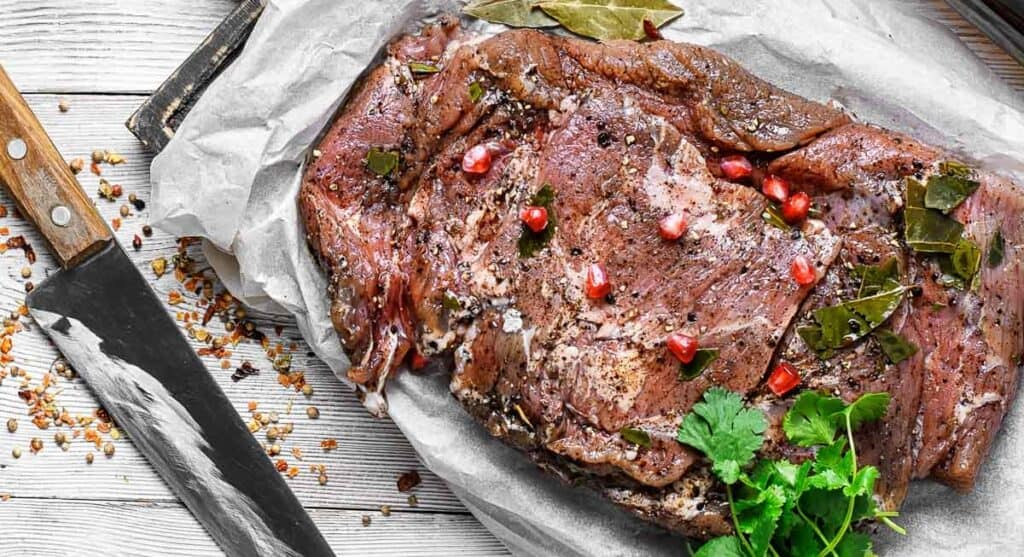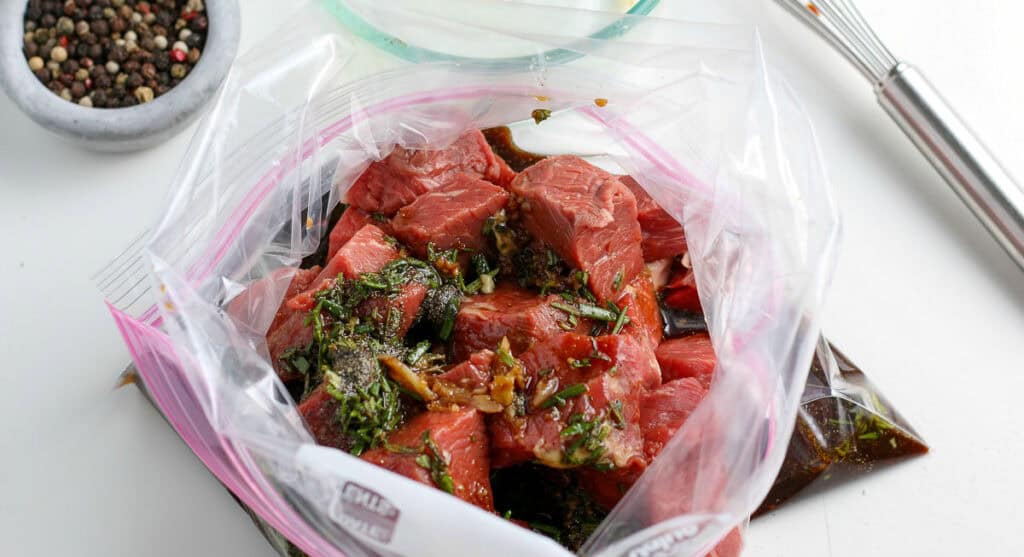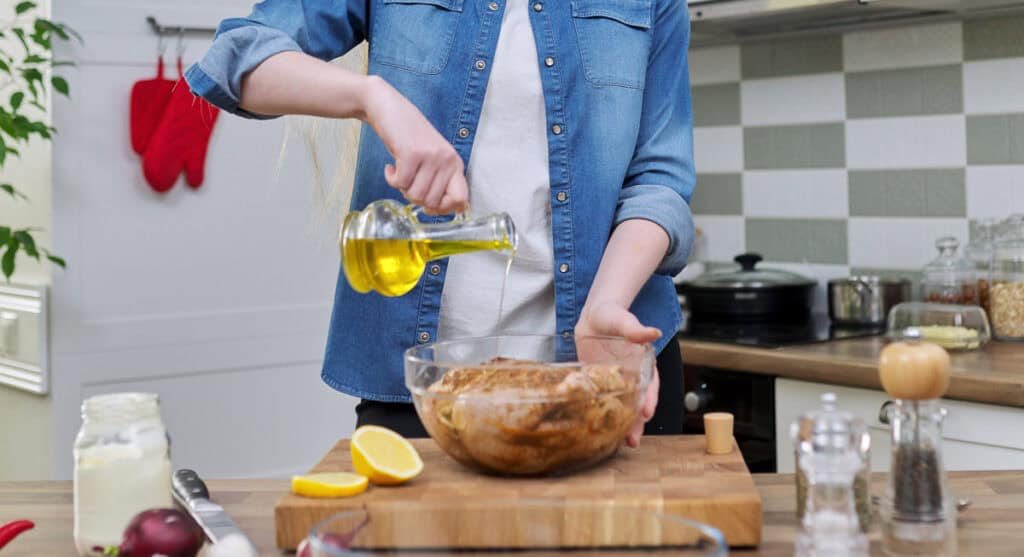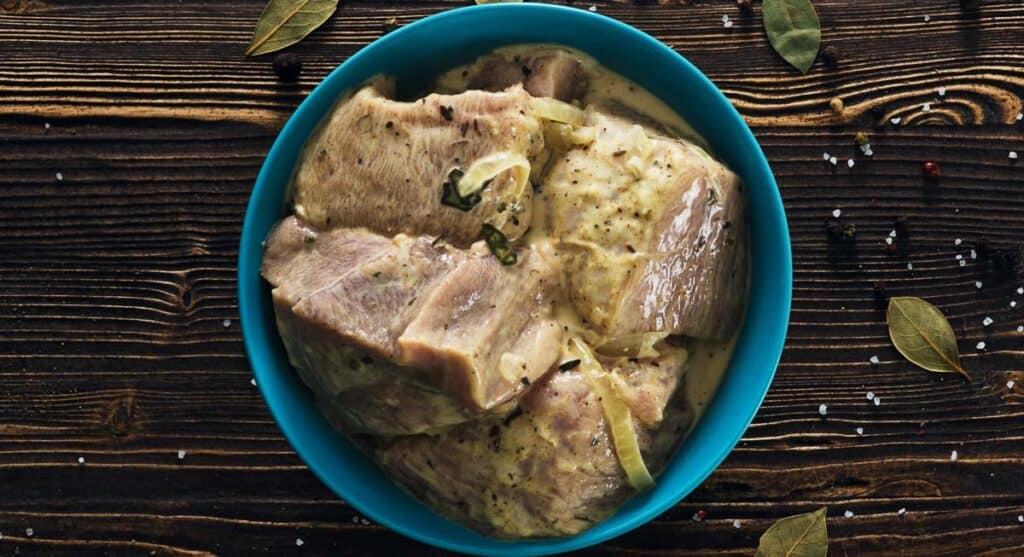Marinating is a secret weapon that turns tired recipes from ordinary to extraordinary and experiments with bold, exciting tastes. A marinade is flavor magic for all sorts of foods, including meats, vegetables and even tofu.

It is also ridiculously easy and requires no fancy culinary skills. A quick marinade unlocks a world of deeper flavors with very little time or effort. Learn the secrets of marinating and impress not just yourself but anyone lucky enough to join you for dinner.
What is marinating?
Marinating is a culinary technique that involves soaking food, typically meat, poultry, seafood or vegetables, in a seasoned liquid. This process is not only simple but also incredibly practical. The marinade infuses the food with delicious depths of flavor, making every bite an explosion of taste.
In addition, marinating improves the texture of food by tenderizing tough cuts of meat. It can also add moisture to food, which helps prevent it from drying out during the cooking process.
Marinating is not a method of cooking but a step that enhances the final product when the food is eventually cooked. Whether you’re planning to grill steak kabobs, roast a succulent bird or air fry chicken, a well-chosen marinade can take your dish to the next level.
“We marinate both chicken and steak whenever possible. Not only does it infuse the flavor better, but it also results in the juiciest bites of meat! Even a 30-minute marinade yields delicious results, so it’s always worth it.”
— Shelby, Fit as a Mama Bear

Basic marinade ingredients
The foundation of most marinades starts with an acid, which plays a crucial role in tenderizing the food. Common acidic choices include vinegar varieties such as balsamic and apple cider, citrus juices like lemon and lime, and wine. These components break down the proteins in the meat, making it more tender and flavorful.
Next, oils are essential in a marinade to keep the food moist and juicy. Olive oil is popular due to its rich flavor, but vegetable and sesame oil are also excellent options. Oils help carry the herbs and spices deeply into the food.
Herbs and spices are the heart of any marinade, introducing bold and aromatic flavors. Garlic and ginger add a spicy zest, while cumin, rosemary and basil contribute complex notes. You can select the herbs in your marinades to match your taste preferences.
Salt is another key component; it enhances all the flavors and helps draw out moisture from the food. Sea salt and kosher salt are traditional options, but soy sauce can also add saltiness and a depth of umami flavor.
Sweeteners like honey, sugar or maple syrup are not essential but are often added to balance out the acidity. The sweetness also helps create a caramelized exterior when the food is cooked, adding an extra flavor.

Avoid common pitfalls
While marinades are a fantastic way to infuse flavor and tenderness, some common mistakes exist. Going overboard on marinating can turn your food into mushy misses or cause food safety issues.
- It is possible to over-marinate food. Marinating or too long can negatively affect the flavor and make the food soft and mushy.
- Always marinate your food in the refrigerator to keep bacteria from growing.
- Leftover marinade that has been in contact with raw meat is unsafe to use without cooking first. Boil leftover marinade for at least a minute to kill any bacteria.
- Marinate in glass or plastic containers, not metal. Metal can cause unwanted reactions with the marinade ingredients.
“When grilling something like chicken breast, a marinade works so well to lock in flavor and ensure that the meat cooks evenly. No one likes dry, chewy chicken breast! Marinating chicken for only one hour makes a world of difference.”
— Madison Wetherill, Joyfully Mad
Best types of food to marinate
Marinating is not a one-size-fits-all situation. Different foods soak up the marinade at different rates. Here are some commonly marinated foods and how long they need.
- Chicken: Chicken absorbs flavors well and is perfect for various cuisines. Whether you’re grilling, baking or air frying your chicken, a marinade will take chicken from bland to delicious in 30 minutes to four hours.
- Beef: Beef benefits from marinating, especially cuts like flank steak and sirloin. It tenderizes these tougher cuts and infuses them with rich flavors. Marinate beef for anywhere from two hours to 24 hours, depending on the cut of meat.
- Pork: Pork chops, loins and tenderloins marinate beautifully. The process enhances their natural flavors and keeps them moist during cooking. Thin cuts of pork should be marinated for up to two hours, while roasts benefit from up to eight hours of marinating.
- Fish: Fish filets such as salmon, cod and tilapia are great for shorter marinating times. They only need 15 to 30 minutes in a marinade.
- Tofu: Tofu, especially firm varieties, soaks up flavors remarkably well. Marinate overnight for best results, making it a tasty addition to stir-fries and salads.
- Vegetables: Vegetables like eggplant, zucchini and bell peppers benefit from marinating. They become more flavorful and are perfect for grilling or roasting. Vegetables benefit from marinating for 30 minutes to two hours.
- Shrimp: Shrimp are quick to marinate and cook. A simple blend of citrus, garlic and herbs can enhance their natural taste. They only need 15 to 30 minutes in a marinade.

“My favorite way to cook salmon involves using a simple marinade made with one part olive oil and three parts lemon juice. Place the marinade in an oven-safe dish, then add the salmon skin side up and let it sit for up to 15 minutes. Flip it skin side down and bake for 12 minutes at 400F. The original marinade now becomes the sauce!”
— Anne Mauney, MPH, RD, fANNEtastic food
Summing up
Marinades turn everyday ingredients into flavorful and juicy masterpieces. This simple technique lets you experiment with different flavor profiles and cooking methods. So explore the possibilities of marinades, whether you choose to grill, roast, air fry, bake or sauté your marinated creations.
Anne Jolly is the creator of the food blog Upstate Ramblings. She loves to cook with gadgets like an air fryer, sous vide or pressure cooker.